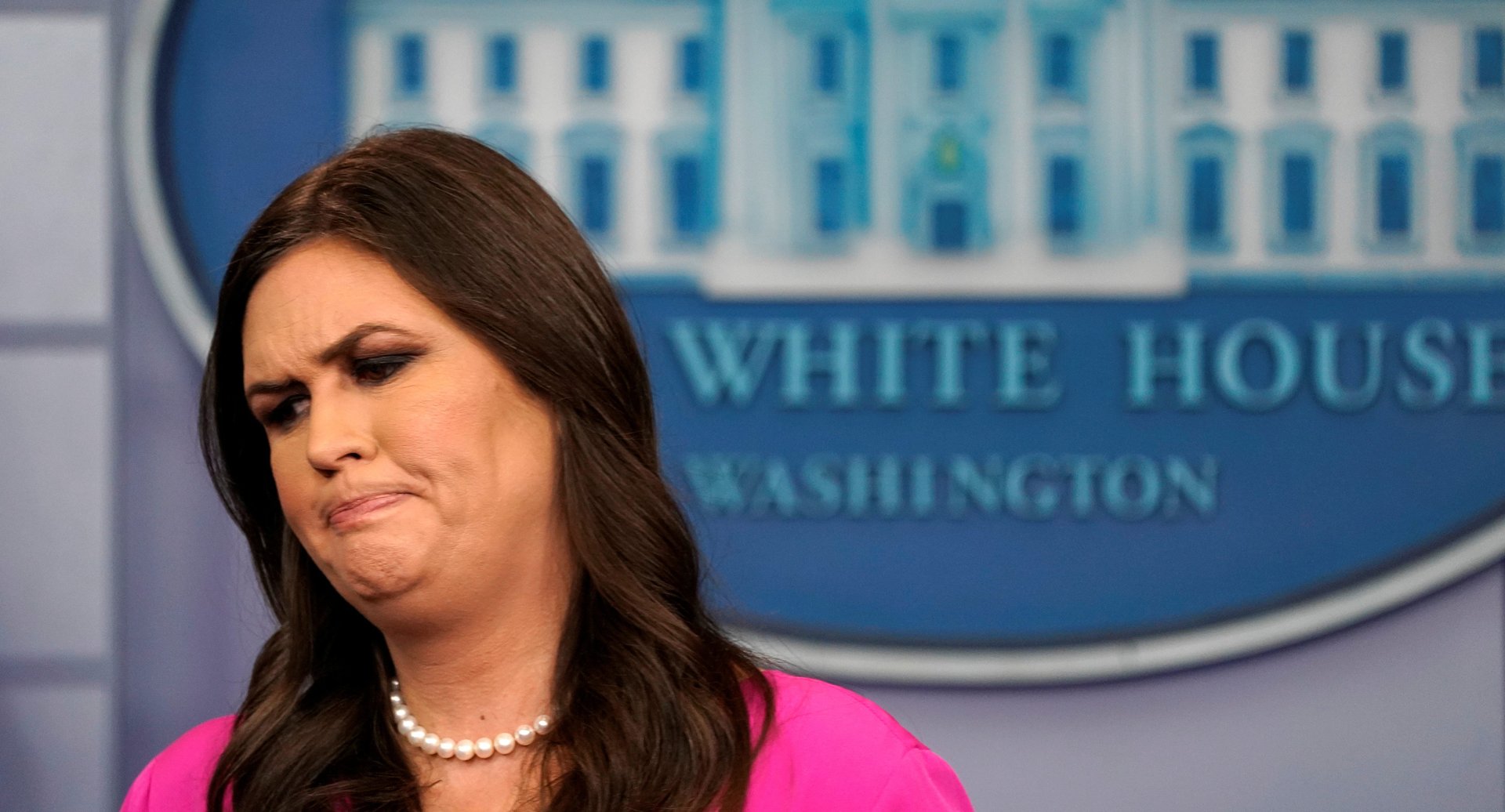Trump’s ally in his war on “fake news”: the Chinese Communist Party
In its ongoing battle with the so-called “mainstream media,” the Trump administration has found a staunch ally: the Chinese Communist Party.


In its ongoing battle with the so-called “mainstream media,” the Trump administration has found a staunch ally: the Chinese Communist Party.
Trump and his team have long complained that the US press is biased against them. Even since day one, when Sean Spicer, then the White House press secretary, accosted the media for not reporting that the size of the crowd at Trump’s inauguration was the largest of any president (it wasn’t).
Yesterday (Dec. 11), Sarah Sanders, Spicer’s successor, accused the media not just of making mistakes, but of “purposely putting out” false information. That claim came after ABC News and CNN have in recent weeks both issued major corrections to their coverage of Trump’s ties to Russia.
Sanders’s accusation inspired the media to defend itself, with CNN writing, “there’s absolutely zero evidence…that any reporter covering the Trump White House has published something they knew to be false.” It also inspired the People’s Daily, the mouthpiece for the Chinese Communist Party, to write an op-ed supporting Sanders and Trump in their efforts to undercut the credibility of the American media.
In the bombastic style typical of Chinese propaganda, People’s Daily columnist Curtis Stone gets right to it with the headline, “Trump’s fake news mantra speaks to a larger truth about Western media.”
The op-ed then unconvincingly argues that if the president uses the phrase “fake news,” the news must therefore be fake.
[Trump’s] dislike and distrust of the US media raises questions about the fairness of Western media reports. In describing his distaste for the media, Trump has repeatedly used the phrase “FAKE NEWS” online and also in numerous speeches and interviews. If a sitting US president argues that his nation’s leading media outlets are essentially fake news machines, then it is logical to assume that at least some of the outlets have political agendas.
This line of argument is familiar to anyone who follows China. In fact, the Chinese government has long employed the same strategy as Trump in response to negative press from large media outlets in the US: attempt to discredit them as “biased.”
As the People’s Daily writes, “For years, China has long been on the receiving end of Western media bias.” State-run news outlets and influential politicians in China frequently complain about how the “Western media” does not cover positive stories about the country. (Inevitably, this results in mention of the positive story of China lifting hundreds of millions of people out of poverty, which Stone dutifully includes in his op-ed.) Trump similarly blames the media for focusing too much on the negatives, which is probably why he gets a stack of positive news about himself each day.
All of this shows that the Trump administration’s accusations of “fake news” could have a profoundly damaging effect abroad. Stone uses Trump to discredit any negative news about China: “If the President of the United States claims that his nation’s leading media outlets are a stain on America, then negative news about China and other countries should be taken with a grain of salt since it is likely that bias and political agendas are distorting the real picture.” The Western media’s credibility in China is already low, and China has already piggybacked off of Trump’s “fake news” claims in the past.
Paradoxically, that will make it more difficult for Trump to get leverage on China. If the Chinese public widely considers the Western media to be fake, bolstered by Trump’s claims as such, there will be no entity capable of challenging the Communist Party’s narrative. And that is a narrative in which China continues to use Trump to its advantage.